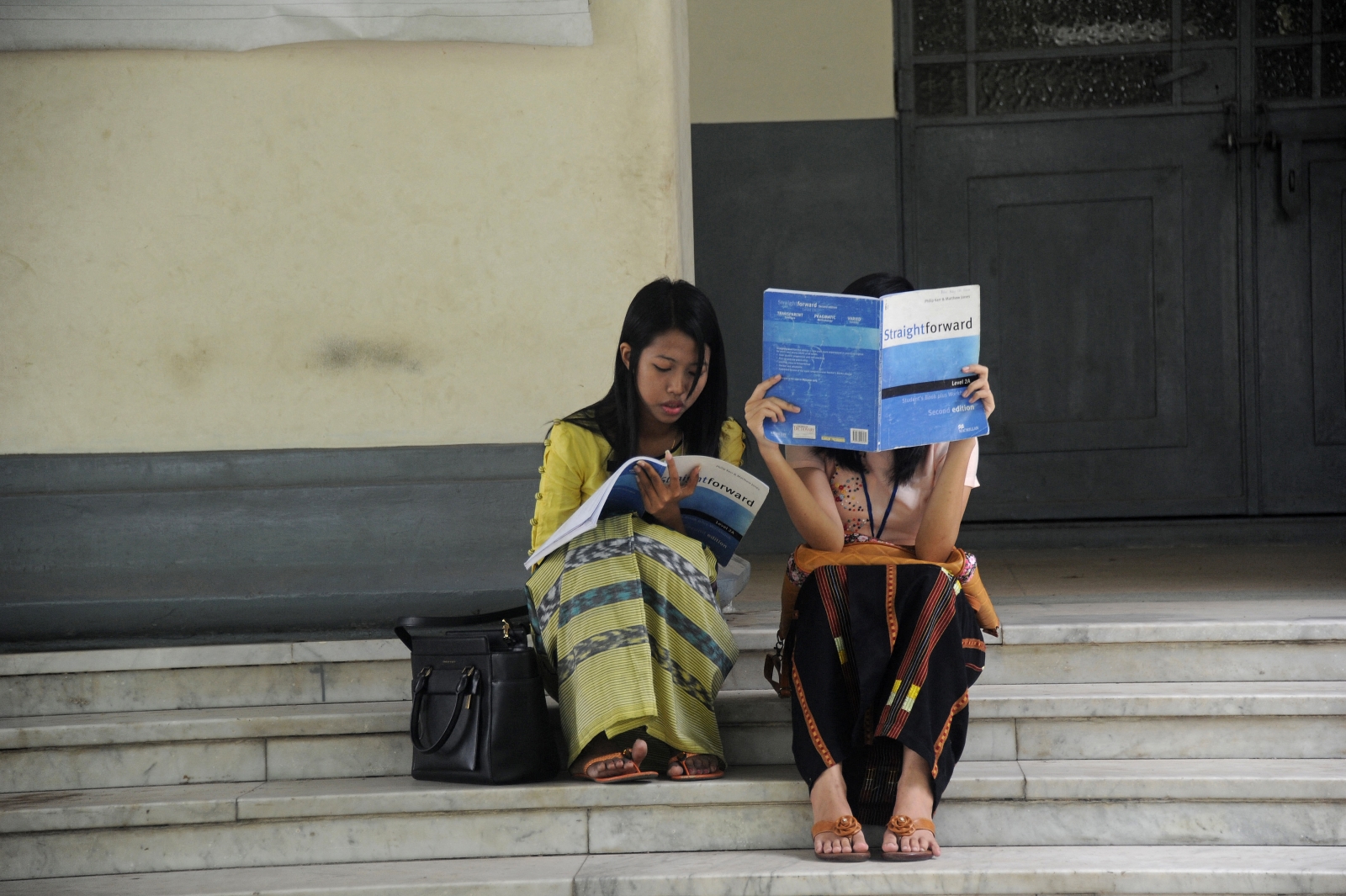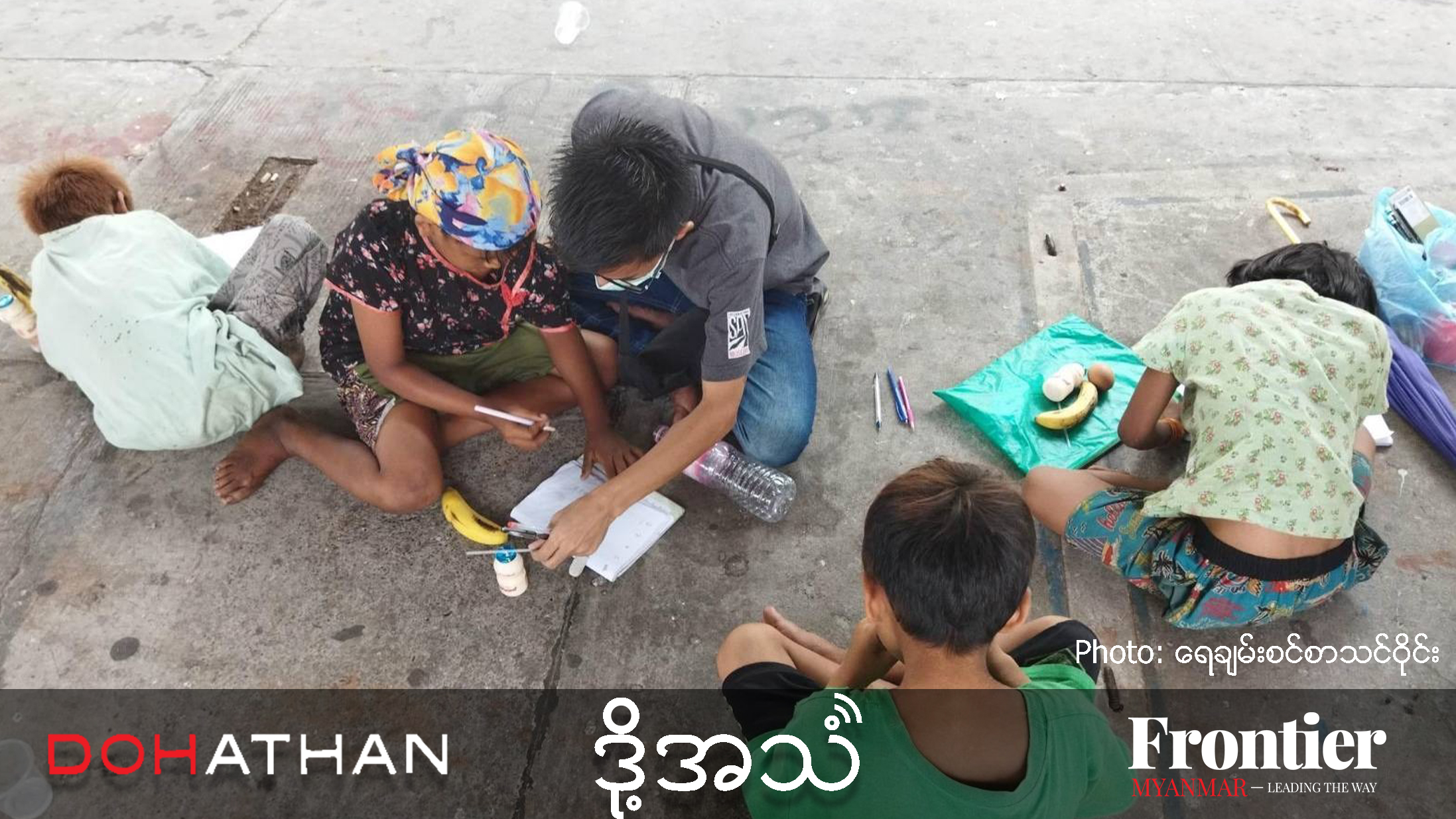Education Minister Dr Myo Thein Gyi has said students will no longer be placed in separate classes based on academic achievement, in a major change to the Basic Education system.
The new system will take effect at all state-run primary, middle and high schools when the 2017-18 academic year begins in June, Myo Thein Gyi said on April 26.
He was speaking at a news conference at the Ministry of Information in Nay Pyi Taw that focused on reforms implemented during the first year of the National League for Democracy government.
The Deputy Minister of Education, U Win Maw Tun, said the change was being made to avoid discrimination in applying the Basic Education Law and to bring Myanmar into line with international practice.
It would mean that students would no longer be taught in separate classes based on whether they were outstanding, good or fair academic achievers, he said.
Support more independent journalism like this. Sign up to be a Frontier member.
“We will just keep records [that monitor the performance] of the student,” he said, in response to a question from Frontier.
“Parents will no longer be able to insist that their children be placed in A grade classes,” Win Maw Tun said. “No matter how classes are graded they will include students who are outstanding, good and fair.”
Asked how the system would be managed, Win Maw Tun used the example of houses numbered from one to 10. “There are 10 houses, but it does not mean that number one is better than number 10,” he said.
Ministry of Education officials said the objective of the change was to encourage students to work together and help each other regardless of their academic performance.
Myo Thein Gyi said another education reform introduced in the government’s first year was the introduction of overall performance assessments, which use exam results, sporting achievements and other indicators to determine if a student could advance to the next grade. This replaced a system introduced in 1988 that assessed students only on their exam results.
The minister said other reforms included changes to the exam system and providing supplementary classes for students who were unable to attend school regularly.
There has been criticism on social media that the introduction of some of the reforms, including changes to how students are assessed, was too abrupt, and that timetables for February exams were announced too late.
Asked by Frontier about the management of future reforms, the minister said a timetable would be introduced to ensure all were aware of when changes would be introduced.
The reforms are being implemented in line with the National Education Strategic Plan launched by State Counsellor Daw Aung San Suu Kyi in February.
The plan is the culmination of an education sector review launched in 2012 that involved input from thousands of teachers, headmasters, education specialists, civil society groups and parliamentarians.







